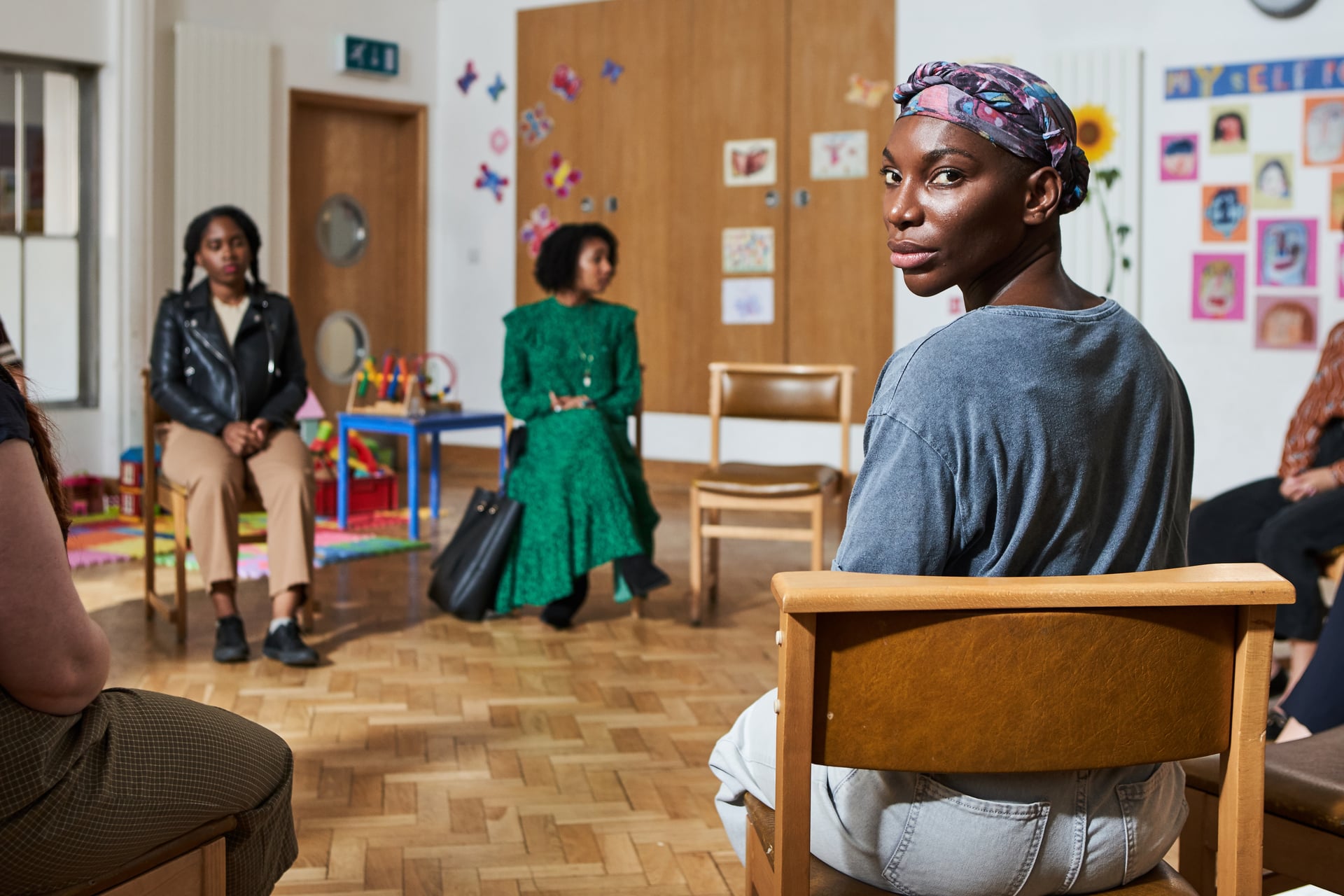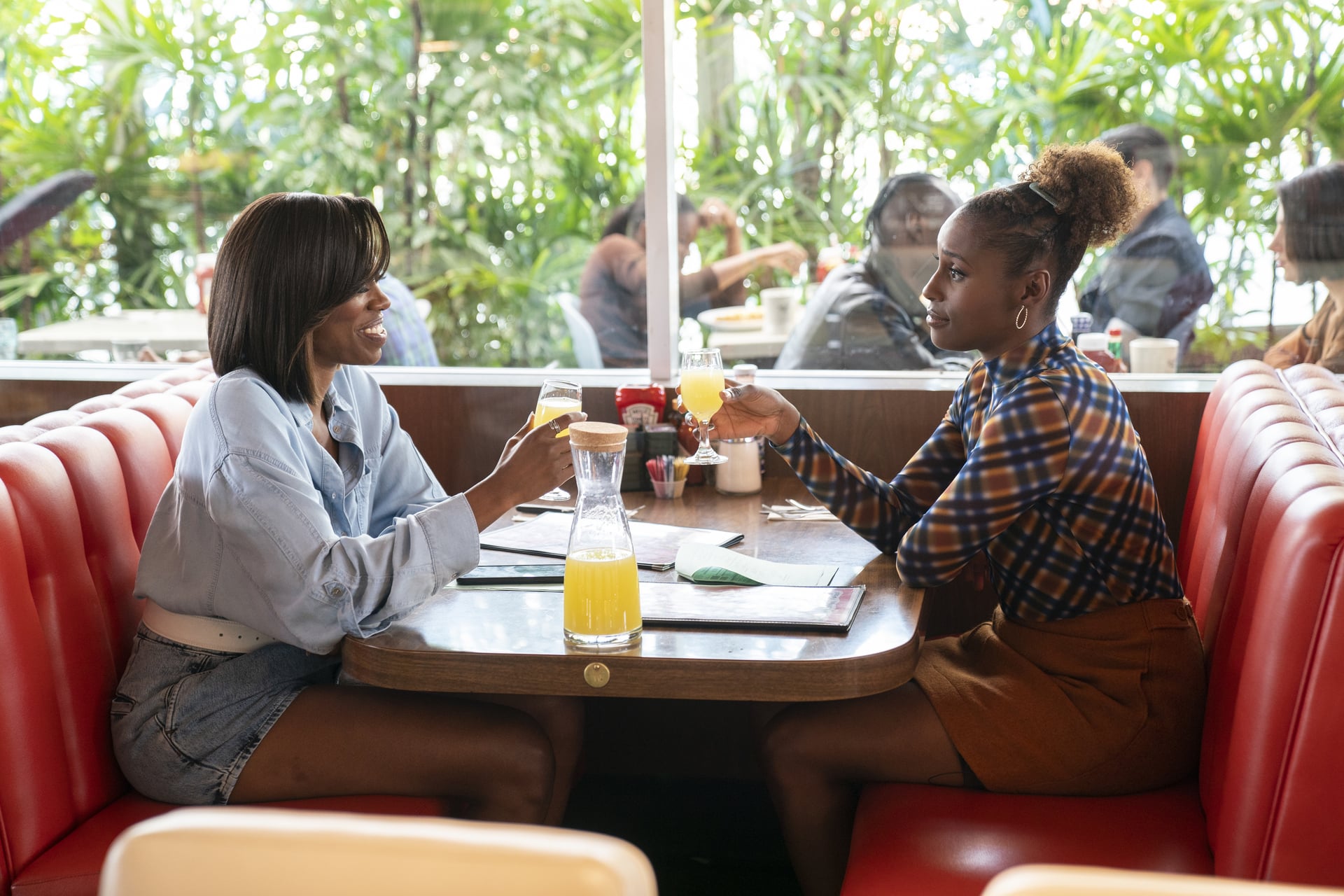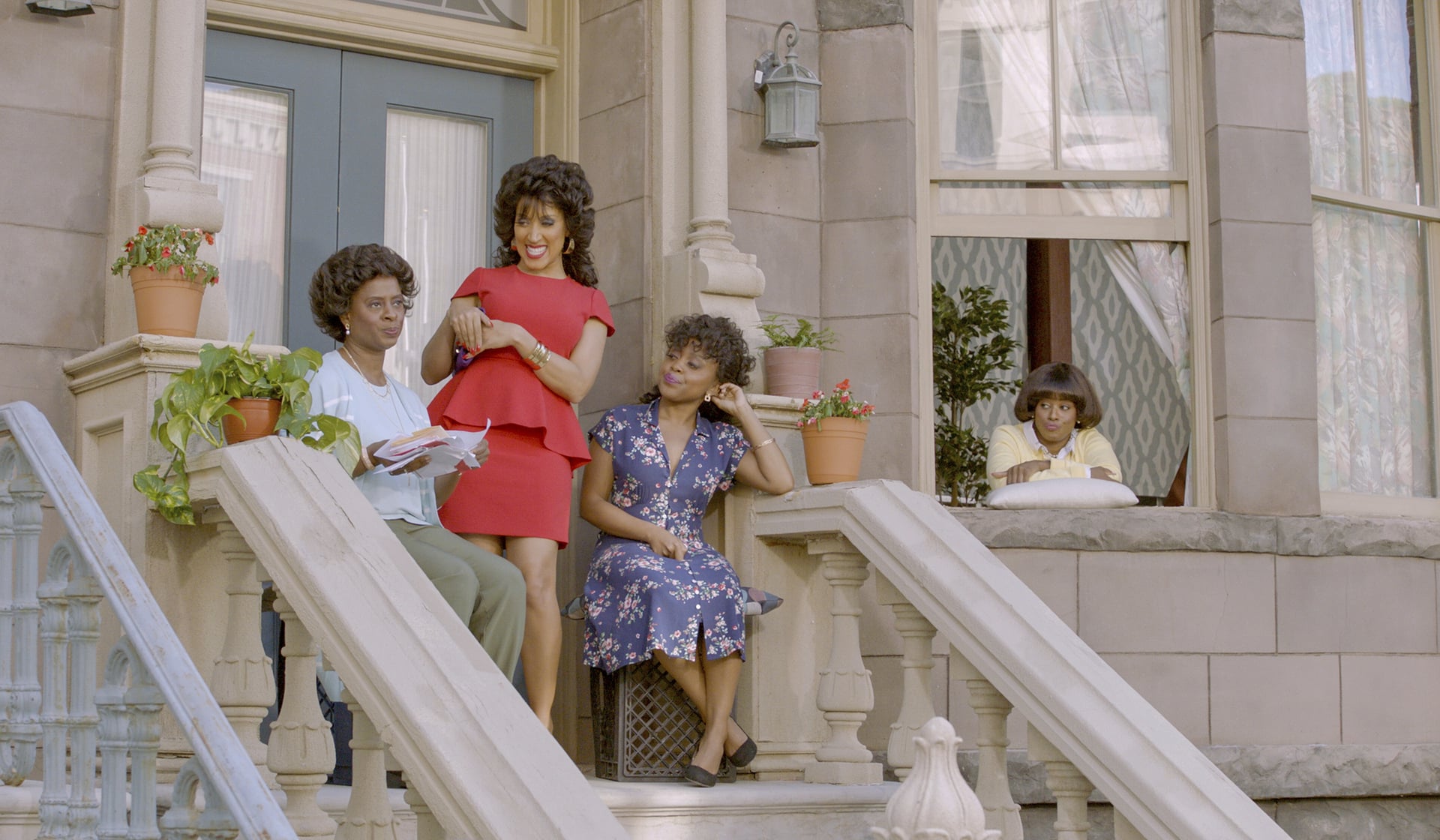
Michaela Coel rejected a million-dollar offer from Netflix [1] after the streaming service refused to grant her the copyright to I May Destroy You, a revelatory drama she conceived and birthed all on her own. After laboring to find a network that would give her what was due, Coel signed a deal with HBO for her now critically acclaimed series that has every award merely waiting to be clenched. Not every network would green-light a series in which Italian men play with squishy blood clots or Black women unabashedly chat while on the loo. But HBO, a premium channel formerly pegged as broadcast programming with a splash of nudity, has chiseled a legacy for itself with the piercing wit and blunt relentlessness of its creators — some of whom are Black women telling their stories without worry or remorse.
HBO, like every other network, has been starch-white for most of its history. Moments of inclusion occasionally reared their heads, peeking out under A-list talent that squeezed through the pearly gates. Def Comedy Jam was one of these moments. Although criticized (rightfully so) for fanning inflammatory stereotypes, it was still 30 minutes when Black people at home could watch Black people create and perform their own stories. The industry has changed since then, especially in this past decade as audiences demand more representation throughout Hollywood. Each network has taken its approach to appease, or in some cases ignore [2], the masses calling to be heard.
"Individual creators have instead focussed on inclusion . . . propelling the narrative of their community forward instead of conforming their community in the narrative of white America."
Some networks, like CBS, have focussed on casting more leads of colour and diversifying writers rooms. Three out of five new shows introduced during the channel's 2019 fall lineup featured leads of colour (Mike Colter in Evil, Folake Olowofoyeku in Bob Hearts Abishola, and Simone Missick in All Rise). CBS, and other networks with the same model, have changed who acts out the narrative, but the stories have more or less remain unchanged, allowing no foothold for this crest of diversity to hang on for the long haul. Diversity is a quick response that ebbs and flows with the times, rising as people demand change and subsiding when those frenzied demands grow less deafening.
Individual creators have instead focussed on inclusion, a system of recalibration that introduces the longevity that diversity politics lack [3], propelling the narrative of their community forward instead of conforming their community in the narrative of white America. Kenya Barris built his Black-ish empire at ABC, toiling with the sitcom format to "edutain" audiences on the Black community. Hulu's Ramy, created by and starring Ramy Youssef, gives voice to the plight and joy of being Muslim in a country that demonizes the Islamic faith. Pose, an FX series spearheaded by Ryan Murphy, articulates an expository dive into queer identity and livelihood. These projects and their visionaries, among others, seek to control the story of themselves at whichever network will provide the platform.
With honest explorations of disenfranchised communities scattered across the TV guide, HBO collected them from overlooked places, rebranding itself as a hub for free-thinking creatives. When Casey Bloys was promoted to president of the network in 2016, 72 percent of scripted shows in the 2016-2017 year were helmed by white men [4]; 9 percent by white women. Bloys told The Hollywood Reporter that his main priority was an increase in the diversity [5] of storytelling and storytellers.
"If my job is to appeal, with high-quality programming, to a lot of different demographics, I think a good way to ensure you're doing that and a good way to ensure you're getting things right is to have different points of view," Bloys told THR. "It makes the stories real and authentic and, I would say, more emotional. It's worth the effort because I believe that the end product is always going to be better." Last year, HBO had the second highest rate of episodes directed by women or minorities [6] (this is how the Directors Guild of America formats the study), clocking in at 56 percent, more than double its 2015 figure.

The debut of Insecure, the second series in history to be created by and to star a Black woman (Issa Rae) [7], kicked off Bloys's campaign. Since then, the network has released an onslaught of shows peeling deeper into Black stories by Black storytellers, each one groundbreaking in its own right. 2018 saw the release of Terence Nance's sketch series, Random Acts of Flyness, LeBron James's The Shop: Uninterrupted, and 2 Dope Queens, a series of live specials based on Phoebe Robinson and Jessica Williams's eponymous podcast. Although Watchmen, starring Regina King, was led by Damon Lindelof, a white showrunner known for Lost, he and Bloys deemed it imperative to create a writer's room that could authentically weave nuanced racial relations [8] that ground the show.
HBO not only partners with younger, often overlooked, talent to bankroll juggernaut hits, but also continues those relationships by developing future projects together and bringing more of those creators into the fold. Prentice Penny, the showrunner of Insecure, currently has a project in development with the network. Yvonne Orji and Amanda Seales, two Black comedians with recurring roles in Insecure, debuted comedy specials with the network.
"Some of these (projects) are conversations that evolve from existing relationships," Bloys said. "Last year we had Amanda Seales's stand-up special, and just last month we had Yvonne Orji's first stand-up special, which came about from a conversation with her manager saying she was ready to do an hour special. Needless to say, we were of course already big fans!"
Issa Rae also expanded her partnership with HBO to bring comedian and actress Robin Thede into the fold. After Thede's late-night show, The Rundown With Robin Thede, was cancelled by BET after a critically acclaimed season, Rae urged her to have a sit-down with HBO's comedy head, Amy Gravitt, to pitch her next project. Within minutes, HBO bought A Black Lady Sketch Show, a first-of-its-kind series, securing its Friday night, 11 p.m. time slot. Thede created, writes, stars in, and executive produces the series; Rae is also an executive producer and occasional guest star. Having worked for numerous networks, Thede said HBO has granted her the most freedom by far.

"Having Black woman at the forefront in all types of different iterations is what's so important to me, and it's at the core of the work that I've been doing at HBO. That whole family are really into that in a genuine way — and before it was cool," Thede said. "They didn't just start because of Black Lives Matter resurfacing or any of that. Like, they genuinely had an interest in telling these stories and allowing creators to tell their stories."
There are revolutionary series and yet-to-be discovered forms of storytelling at home on networks that took a risk on these ideas. HBO is not special in that regard. It is its consistency that makes its current lineup iconic. HBO consistently takes the risk of offering coveted resources and exposure to writers and creators yet to have A-list recognition or, A-list creators with seemingly outlandish, yet novel, concepts. Instead of a groundbreaking Black or queer show being the jewel of its programming, those shows are the norm. HBO, if any network, has proven time and time again that a series doesn't need to be white to be groundbreaking.
"I think it's everybody's goal to get to HBO. They support your dream, and their notes are in the service of that dream," Thede said. "That's how they make (successful) projects, because you truly see that you're aligned with their vision, and if they trust you, then they know they're going to get something good. It's an excellent place to make TV."